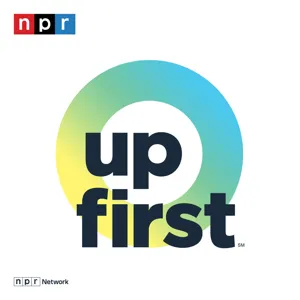Podcast Summary
Russian Anti-Corruption Activist Alexei Navalny Dies in Prison: Russian anti-corruption activist Alexei Navalny, a vocal critic of President Vladimir Putin and the Kremlin, passed away in prison at age 47. Known for his outspokenness and determination to expose corruption, his death marks a significant loss for those seeking reform in Russia.
Russian anti-corruption activist Alexei Navalny, known for his relentless criticism of Russian President Vladimir Putin and the Kremlin, passed away in prison at the age of 47. Navalny, who survived a poisoning attack four years ago, was a vocal figure in Russian politics, known for his outspokenness and determination to expose rampant corruption within the Russian government. His death comes as a shock to many, particularly to the opposition movement, as he was considered one of the last remaining voices challenging Putin's regime. Throughout his career, Navalny accused Putin and the Kremlin of enslaving the Russian people and turning the Russian government into a money-making business for its supporters. He also released videos alleging the president's lavish lifestyle. Navalny's passing marks a significant loss for those seeking reform in Russia.
Russian opposition leader Alexei Navalny challenged Putin's rule despite Kremlin attempts to suppress him: Navalny gained widespread support through anti-corruption campaigns and massive protests, becoming a significant challenge to Putin's rule
Russian opposition leader Alexei Navalny posed a significant challenge to Vladimir Putin's rule, despite repeated attempts by the Kremlin to suppress his influence. Navalny gained widespread support during his mayoral campaign in Moscow in 2013, and after being denied the victory, he focused on campaigning against corruption and supporting local opposition politicians. He organized massive anti-corruption protests in 2017, which resulted in his arrest and attacks on his physical safety. Despite these setbacks, Navalny continued to gain legitimacy as a genuine opposition figure, and in 2018, he announced his intention to challenge Putin in the presidential election. The Russian populace saw him as a legitimate alternative to the sanctioned opposition, who were viewed as puppets of the regime. Despite the Kremlin's denials of corruption and support for all Russians, Navalny's influence and persistence made him a significant thorn in Putin's side.
Navalny's Determination to Challenge Putin: Russian opposition leader Alexei Navalny's unwavering commitment to challenging Vladimir Putin's presidency despite numerous arrests and attacks inspires those seeking change, highlighting the importance of being active and vocal in the face of adversity.
Russian opposition leader Alexei Navalny's determination to challenge Vladimir Putin's presidency despite facing numerous arrests and physical attacks speaks volumes about his character and commitment to change. Navalny, who was seen as a legitimate opposition candidate, was prevented from running in the 2018 election due to prior convictions on alleged embezzlement charges, which he denied. Undeterred, he called on his supporters to boycott the election and continued to be vocal about his desire for change. Despite believing himself to be untouchable due to his public profile, Navalny was ultimately not immune to arrest and attacks. This demonstrates the risks and challenges that come with standing up for one's beliefs and challenging the status quo. Regardless, Navalny's actions serve as an inspiration for those seeking change and highlight the importance of being active and vocal in the face of adversity.
Russian opposition leader Navalny uses video to rally support despite poisoning attempt: Navalny, a Russian opposition leader, survived a poisoning attempt using Novichok and continued to use video to speak out against the Russian regime, demonstrating the power of video in activism and community organizing.
Navalny, a Russian opposition leader, used video to amplify his message and rally support, even facing a near-fatal poisoning attempt. In the summer of 2020, while traveling and organizing opposition groups, Navalny fell ill on a flight, and video footage showed him in distress. His supporters, including his wife, worked to evacuate him for treatment in Germany. German scientists determined he was poisoned with Novichok, a Soviet-era nerve agent, and Navalny accused the Kremlin and Putin of involvement. Despite the danger, Navalny continued to use video to speak out against the Russian regime, highlighting the power of video in activism and community organizing.
Alexei Navalny's unwavering commitment to challenging Russia's corrupt regime: Despite facing sanctions, imprisonment, and even death threats, opposition leader Alexei Navalny continued to boldly speak out against the Russian government and inspire change within the country.
Despite facing sanctions, imprisonment, and even a suspicious disappearance, opposition leader Alexei Navalny continued to boldly speak out against the Russian government from within the country. His determination to make a difference and galvanize support, even while in prison, inspired his followers and showcased his unwavering commitment to challenging the corrupt regime. Tragically, he ultimately disappeared and later died in custody, leaving many unanswered questions about the circumstances surrounding his death. Despite the lack of clear information, Navalny's legacy continues to inspire those who seek change in Russia.
Russian opposition leader Alexei Navalny's death sparks outrage and reflection on Russian society and politics: Navalny's death has sparked outrage, concerns over repression, and calls for accountability, with potential significant ramifications for Russia's standing
The death of Russian opposition leader Alexei Navalny has sparked outrage both within and outside of Russia, despite the Kremlin's attempts to suppress information about his condition and criticism of Vladimir Putin. Navalny's supporters and critics alike are reflecting on the implications of his death for Russian society and politics, with many expressing concern over the extreme level of repression in Russia and the chilling effect it has on free speech. Putin has been accused of being responsible for Navalny's death, and calls for accountability are growing louder. This event is expected to have significant ramifications for Russia's domestic and international standing.
Russian Opposition Leader Alexei Navalny's Imprisonment and Suspected Death: Putin's grip on power in Russia remains strong as shown by Navalny's imprisonment and suspected death, highlighting the regime's use of repression to maintain control.
Key takeaway from today's discussion is that Vladimir Putin's grip on power in Russia remains strong and unchallenged, as shown by the imprisonment and suspected death of opposition leader Alexei Navalny. The regime's use of repression as a tool for maintaining control highlights Putin's position as the last man standing in Russian politics. Despite the uncertainty surrounding Navalny's death, the Russian authorities' role in his imprisonment underscores the power dynamic at play. This demonstrates the strength of Putin and his regime, and serves as a reminder that opposition voices continue to face significant obstacles in Russia.






